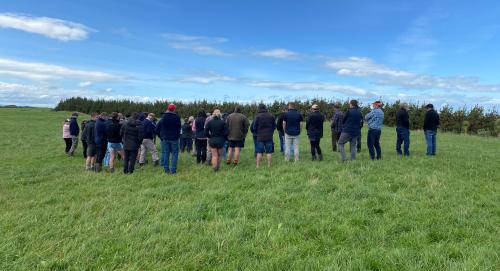Search results
Displaying 361 - 370 results of 1104
- News… round, keeping sheepmeat on the shelves and meeting consumer demand,” says Jolly. “With …

- Factsheet… forage maize sorghum nil endophyte ryegrass annual shortterm ryegrass only 2 following …
- New Zealand scientists are conducting a ground-breaking research programme to explore the benefits of eating pasture-raised beef and …
- Factsheet… economic modeling based ewe deaths least 4 annually uses 202324 pricing data dollar … more than 45 your ewes dying going missing annually should possible reduce following …
- News… will not stand for re-election at the next Annual Meeting. Martin reflects on his time as a …

- News… Results of other voting will follow the annual meeting next week. …

- Industry data… weight usd072 estimated 202021 average annual price class steerheifer 270295kg 507 … 42 39 17 10 45 new zealand 37 36 32 16 15 58 annual average change march year note euro … new zealand red meat industry include meeting requirements changing consumer buying …
- News… 150 Hogget Mating and Lambing Action Group meeting in Waimatuku, Southland. …

- Industry data… rob davison executive director 04 471 6034 annual lnz stock number survey provides … due more breeding cows good conception rates annual stock number survey highlights ongoing …